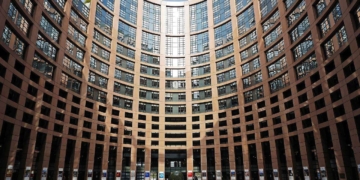No products in the cart.
The European Parliament (EP) is one of the most important institutions of the European Union (EU). It represents the interests of the citizens of the member states and plays a crucial role in legislation and democratic control within the EU.
Key Facts
- The European Parliament: A central institution of the European Union that represents the interests of the citizens.
- Legislation: Together with the Council of the European Union, responsible for the adoption, amendment or rejection of laws.
- Budget control: examines and adopts the EU budget, crucial for the allocation of financial resources.
- Democratic control: Exercises control over the European Commission, makes inquiries and conducts investigations.
- Elections: Members of parliament are elected every five years in general, free and secret elections.
- Only directly elected institution: Offers citizens a voice at European level and influence on decisions.
- Challenges: Facing criticism regarding efficiency, transparency and high costs due to seat changes.
History and development
The European Parliament was originally established as the Joint Assembly of the European Coal and Steel Community. Over the years, it developed into a full-fledged parliamentary institution. Since 1979, Members of the European Parliament have been directly elected by the citizens of the EU.
Role and functions
The European Parliament has three main functions:
- Legislation: Together with the Council of the European Union, the Parliament is responsible for legislation within the EU. It has the right to adopt, amend or reject laws.
- Budgetary control: Parliament has the power to scrutinize and adopt the EU budget. It plays a critical role in allocating funding for various programs and initiatives.
- Democratic control: The Parliament exercises democratic control over the other EU institutions, especially the European Commission. It can make inquiries and conduct investigations.
Composition and elections
The European Parliament consists of members whose number is based on the population of the member states. Deputies are elected every five years in general, direct, free and secret elections. Each member state has a certain number of seats, with smaller countries having proportionately more seats than larger ones.
Mode of operation
The European Parliament has its official seat in Strasbourg, France, but meetings are also held in Brussels, Belgium, and Luxembourg. The work of the Parliament is divided into various committees and delegations dealing with specific issues.
Importance for citizens
The European Parliament is the only EU institution directly elected by citizens. It provides citizens with a voice at the European level and allows them to influence the decisions that affect their daily lives.
Challenges and criticism
The European Parliament faces various challenges, such as the need to increase the efficiency of its work, improve transparency and involve citizens more. It is often criticized for the high cost of switching the seat between Strasbourg and Brussels and for what is perceived as insufficient democratic legitimacy.





















